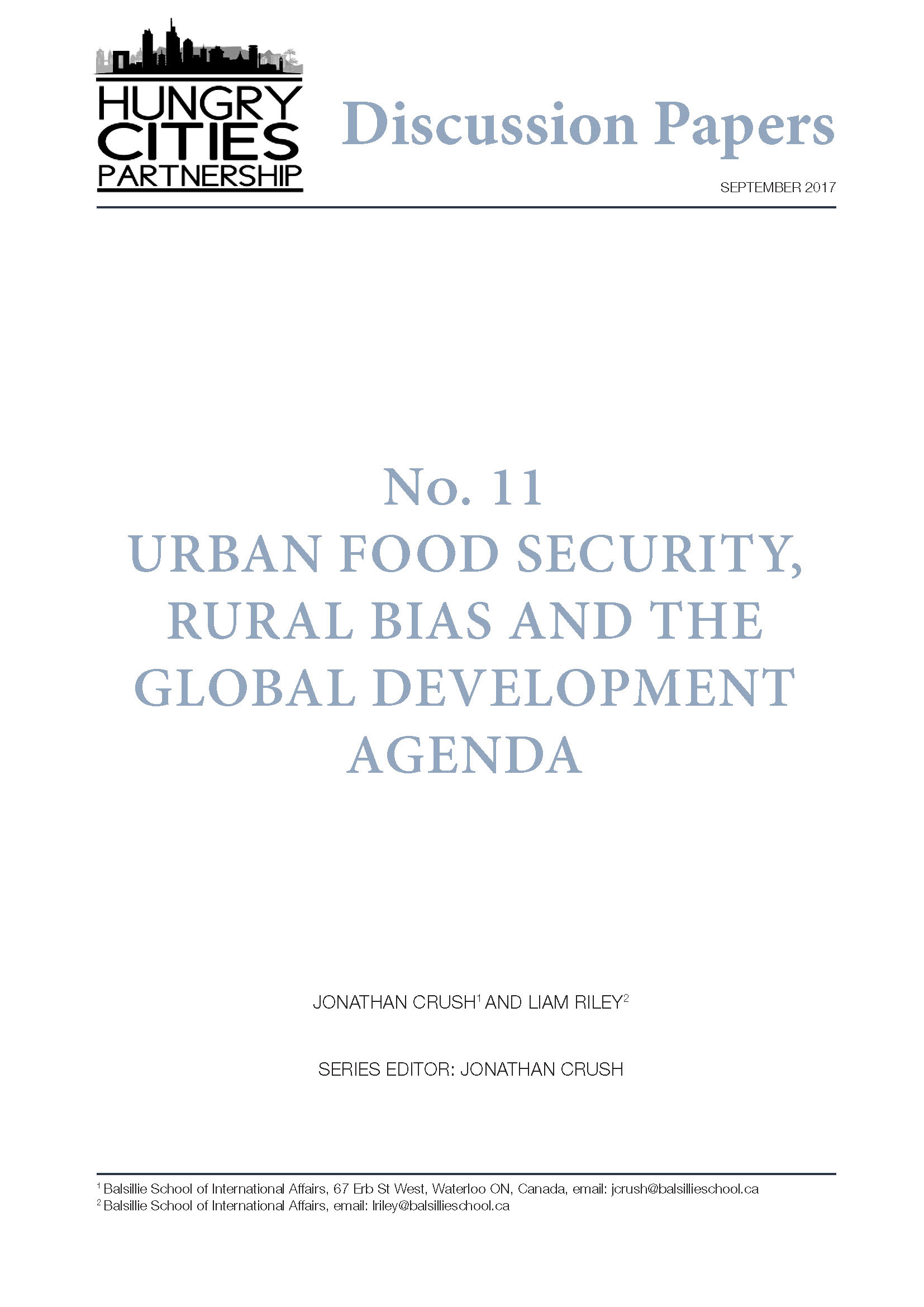This discussion paper sets out the global, African, and South African contexts within which both urban development and food security agendas in Africa are framed. It argues that the pervasive rural bias and anti-urbanism identified in the international and regional food security agendas in the first decade of the 21st century have persisted into the second. In examining whether the last decade has brought any significant changes to the dominant discourse and its accompanying sidelining of urbanization and urban food security in policy debate and formulation, the authors find that there are promising signs for cracks in the edifice but that rural bias remains the dominant feature of current thinking about food security policies. Although researchers have begun to press for the urban to be included in the food security agenda, and food to be included in the urban agenda, there has been limited policy uptake to date at the international level and very little at the municipal level. If urban food security is addressed in a substantive manner, it will probably be indirectly, through the actions of the influential global nutrition lobby.

